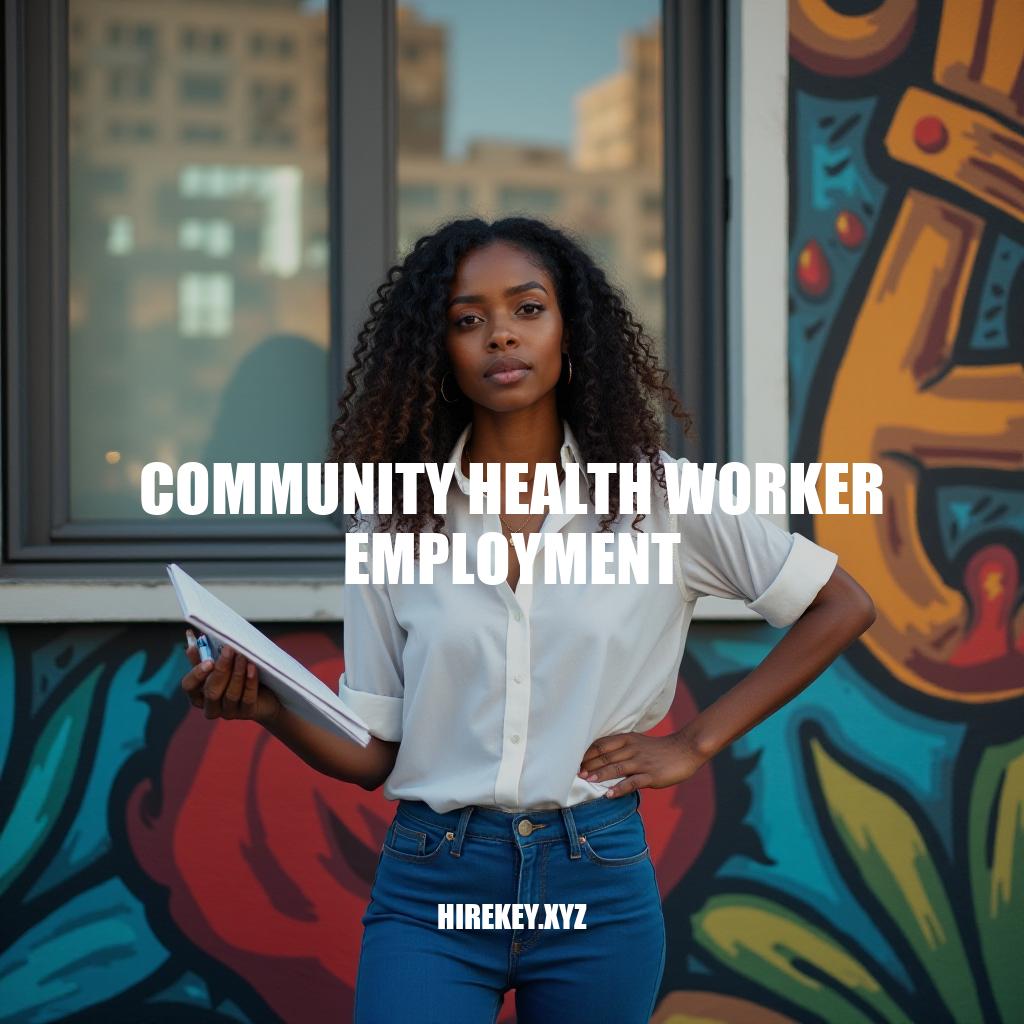
Community health worker (CHW) employment is the integration of trained individuals from the local community into the healthcare system to provide support and education. CHWs bridge the gap between healthcare providers and patients by offering culturally relevant care and promoting healthier lifestyles. They enhance healthcare accessibility, particularly in underserved areas, and contribute to better health outcomes through their direct engagement with the community.
By reducing healthcare disparities and improving patient trust, CHWs play a crucial role in strengthening overall public health and the efficiency of healthcare systems.
Role and Responsibilities
Community health workers (CHWs) operate on the frontline of public health, playing a vital role in improving access to healthcare services. They conduct community outreach, educate on health topics, and provide basic health services such as monitoring vital signs. CHWs offer social support, help navigate healthcare systems, and advocate for patients.
They work closely with healthcare professionals to bridge the gap between communities and healthcare services, contributing to early diagnosis, treatment adherence, and overall health outcomes. By fostering trust and cultural understanding, CHWs significantly enhance public health through preventive care, health education, and direct patient interaction.
Training and Certification
-
High School Diploma or Equivalent: Minimum requirement for entry-level positions.
-
Training Programs: Typically around 100 hours of training, including classroom study, on-the-job training, and mentoring.
-
Certification: Varies by state; may include a one-year certification or a two-year associate degree focusing on communication, ethics, and health behavior.
-
Experience: Often requires 1 year of full-time or 2000 hours of part-time experience as a community health worker.
-
Continuing Education: Ongoing training in areas such as social determinants of health, advocacy, and health equity.
-
Application and Fees: Submission of an application, verification of experience, and payment of fees (varies by state).
-
State-Specific Requirements: Check state health departments or programs for specific certification criteria.
Challenges and Opportunities
Community health workers (CHWs) face several challenges in their employment, including heavy workloads, balancing multiple stakeholders’ agendas, dealing with cultural and religious differences, and gender-related barriers. Additionally, they often experience stress and anxiety due to the unpaid nature of their work in some regions, which affects their ability to provide for their families.
Despite these challenges, there are numerous opportunities for career growth in this field. CHWs can pursue specialized training programs, obtain certifications, and gain on-the-job experience to advance their careers.
They can also move into higher positions such as clinical work, social work, education, CHW management, and advocacy. The Bureau of Labor Statistics projects a significant growth rate for CHW jobs, indicating a promising future for those in this profession.
Community Health Worker Employment: Key Points and Significance
Community health workers (CHWs) play a vital role in bridging the gap between healthcare providers and patients, particularly in underserved areas. They offer culturally relevant care, promote healthier lifestyles, and enhance healthcare accessibility.
Key Qualifications for CHW Employment
Key qualifications for CHW employment include:
- A high school diploma or equivalent
- Training programs
- Certification
- Experience
- Ongoing continuing education
Note: State-specific requirements may vary.
Challenges and Opportunities for CHWs
CHWs face challenges such as:
- Heavy workloads
- Cultural differences
- Unpaid work in some regions, leading to stress and anxiety
However, there are opportunities for career growth through:
- Specialized training
- Certifications
- On-the-job experience
Future Prospects for CHWs
The Bureau of Labor Statistics projects significant growth for CHW jobs, indicating a promising future for those in this profession.
By fostering trust and cultural understanding, CHWs significantly enhance public health through:
- Preventive care
- Health education
- Direct patient interaction


